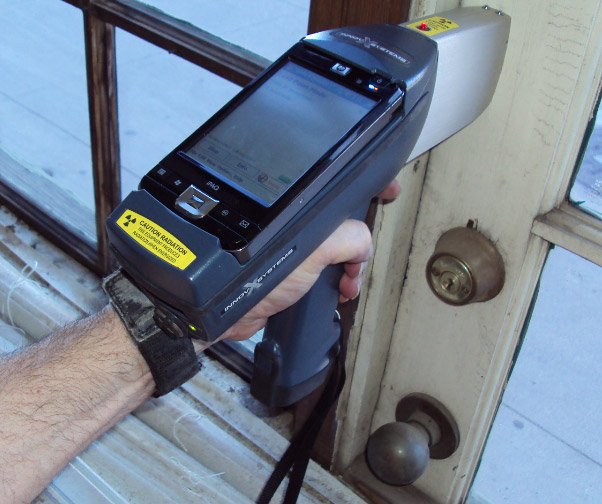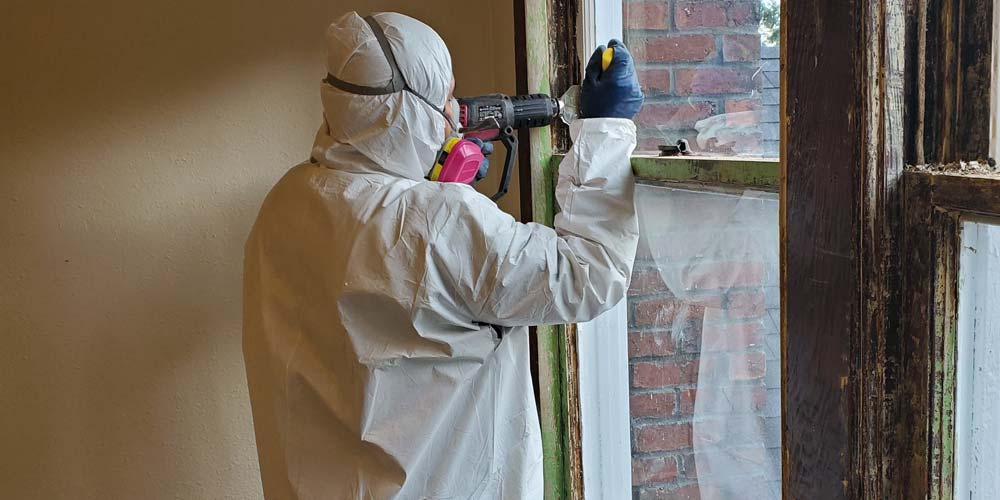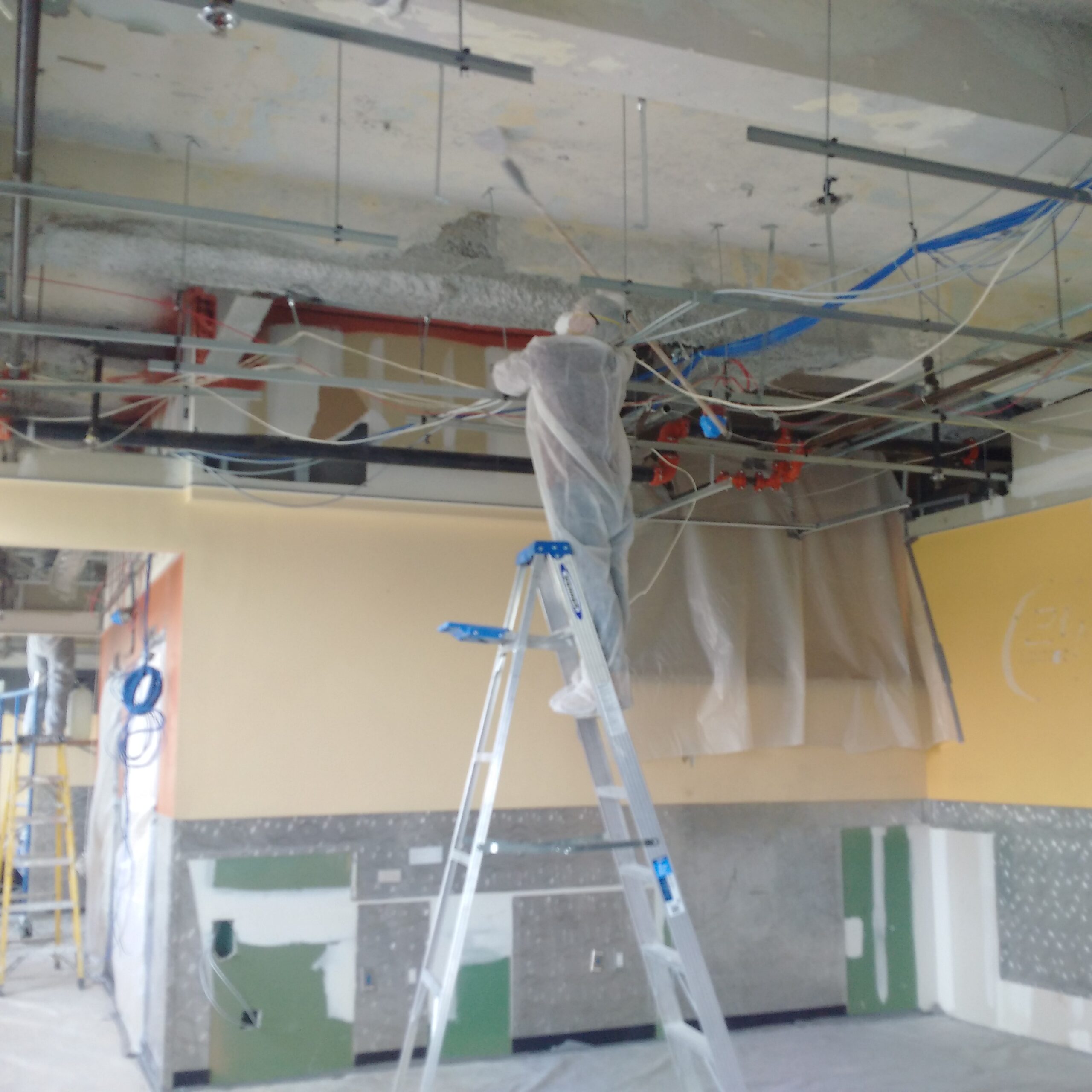Expert Lead Violation Removal in NYC-- Safeguard Versus Health And Wellness Hazards
Expert Lead Violation Removal in NYC-- Safeguard Versus Health And Wellness Hazards
Blog Article
Best Practices for Making Sure Safe and Extensive Lead Infraction Reduction
Resolving lead violation reduction calls for a multi-faceted method to guarantee both security and conformity. Initial assessments making use of sophisticated discovery methods such as XRF analyzers established the stage for a specific understanding of contamination levels. Incorporating proper containment strategies, including impermeable obstacles and HEPA filtering, combined with making use of personal safety equipment (PPE) for workers, forms the backbone of a protected operation. Precise cleanup procedures, featuring HEPA vacuuming and wet-wiping, are crucial. Yet, it's the final clearance process, entailing complete evaluations and lab screening, that absolutely confirms a lead-free setting, guaranteeing long-lasting safety and security. How do these techniques interconnect to ensure comprehensive lead abatement?

Preliminary Evaluation
Carrying out a first evaluation is an important initial step in lead offense abatement. This stage encompasses a thorough evaluation of the home to determine the visibility, level, and details locations of lead-based hazards. Certified experts, such as certified lead inspectors or take the chance of assessors, should carry out a detailed website examination, making use of devices like X-ray fluorescence (XRF) analyzers to accurately find and determine lead concentrations in paint, dirt, soil, and water.
The assessment must also consist of an evaluation of the building's history, previous records, and any type of grievances or health problems reported by residents - Lead Removal Contractors. Documenting the searchings for diligently is necessary, as these documents create the basis for creating an efficient abatement method. A detailed assessment also entails sampling and laboratory evaluation, which are crucial to validate the presence of lead and guide succeeding actions
In addition, it is necessary to communicate the outcomes transparently to all stakeholders, including residential property proprietors, tenants, and regulatory authorities. By ensuring that the first assessment is carried out with accuracy and roughness, specialists can lay a strong structure for a targeted and effective lead abatement process, inevitably safeguarding public wellness and making sure conformity with regulatory criteria.
Appropriate Containment
Correct containment is vital to avoid the spread of lead contaminants during reduction tasks. Properly taking care of containment lessens the risk of lead dust and debris moving to non-work locations, thereby protecting both the environment and people outside the immediate work zone. To achieve correct containment, an airtight obstacle of plastic sheeting must be established around the workspace, making sure all seams and sides are safely sealed. Lead Removal Contractors. This barrier must expand from flooring to ceiling and be taped down to protect against any kind of leakages.

Routine examinations of the containment area are essential to inspect for violations or weaknesses in the obstacle. Any type of recognized problems ought to be immediately dealt with to preserve the integrity of the containment. By sticking to these techniques, abatement jobs can successfully manage lead contamination and reduce affiliated his comment is here wellness risks.
Employee Security
Guaranteeing employee security is extremely important throughout lead reduction projects to stop job-related exposure to hazardous lead particles. Crucial procedures consist of using personal protective equipment (PPE) such as respirators, gloves, and full-body fits specifically created to block lead dirt and fumes. Workers should undergo extensive training on the right use and maintenance of PPE, consisting of fit screening for respirators to make sure optimum efficiency.
Engineering controls, such as neighborhood exhaust ventilation systems, are important in lessening airborne lead concentrations in the workplace. Administrative controls should also be applied, consisting of restricting the duration of exposure and turning workers to lower specific direct exposure times. Regular medical monitoring and organic monitoring are vital for very early detection of lead absorption, allowing timely treatment and therapy.
In addition, developing a decontamination protocol is crucial. Employees must follow rigorous decontamination treatments before breaks and at the end of their shift to avoid lead dust from being lugged outside the work location. This includes complete hand and face washing with lead-specific cleaner and altering out of infected clothing.
Thorough Cleanup
Keeping a risk-free job environment expands beyond worker defense and includes thorough clean-up to make certain lead particles are completely eliminated from the site. The procedure of thorough clean-up is vital in preventing the recontamination of the mellowed out area and safeguarding both present and future residents.
To accomplish a thorough clean-up, all workspace have to be methodically decontaminated. This involves making use of specialized HEPA (High-Efficiency Particulate Air) vacuum and wet-wiping strategies to record and eliminate great lead dust that may have resolved on surface areas. It is critical to clean up all horizontal surfaces, including floors, home window sills, and counter tops, as well as upright surfaces that may have entraped lead bits.
Workers need to wear ideal individual protective equipment (PPE) throughout clean-up to stay clear of direct exposure to residual lead dirt. Used cleansing materials such as wipes, sponges, and wipe heads must be gotten rid of based on contaminated materials disposal guidelines.

Last Clearance
Final clearance is the important ending phase of lead reduction that establishes whether the site is secure for reoccupation. This essential action find out entails thorough inspection and screening to verify that all lead threats have been properly removed. The procedure starts with a visual examination by a qualified lead-based paint inspector or danger assessor to ensure no noticeable dirt or particles stays. This is complied with by gathering dirt wipe samples from various surface areas, including floorings, windowsills, and various other horizontal surface areas. Lead Removal Contractors.

Final clearance screening not only secures future occupants yet likewise ensures compliance with local, state, and government policies. Additionally, it functions as a documented recognition of the abatement service provider's adherence to sector finest techniques. Guaranteeing an extensive and effective final clearance is necessary in protecting public health and wellness and cultivating count on in the abatement procedure.
Final Thought
Making certain risk-free and extensive lead violation abatement demands a complex approach including first evaluations with innovative detection approaches, efficient containment techniques, rigorous worker security procedures, and careful cleanup treatments. The last clearance phase, including detailed inspections and lab testing, is essential to confirm compliance with EPA requirements. Adherence to these ideal methods ensures a risk-free setting for residents, alleviates health threats, and promotes regulatory requirements, therefore promoting public health and wellness and safety Source and security in lead-affected locations.
Report this page